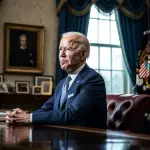The Middle East’s geopolitical landscape is undergoing a remarkable transformation, breaking free from the stagnant narratives that have long portrayed the region as a perpetual hotbed of conflict. The recent upheavals have exposed the failures of liberal pacifism in the face of ruthless militant aggression, making clear that strength, decisive action, and uncompromising leadership are what truly drive change. Israel’s assertiveness in confronting terror groups—and the shifting alliances among neighboring states—signal a new era where security and sovereignty take center stage.
The October 2023 Hamas attack and subsequent Israeli strong military response reshaped power balances, severely weakening Iran-backed terror proxies such as Hamas and Hezbollah. With the fall of the Assad regime in Syria, stripping Iran and Russia of a key ally, regional dynamics pivot toward a multipolar arrangement where pragmatic interests, rather than ideology, increasingly determine partnerships. Saudi Arabia’s emerging role as a regional powerhouse, cautiously but steadily advancing normalization with Israel, conditioned on legitimate diplomatic goals, epitomizes this transformation. This reflects a shift away from reactionary politics toward focused leadership capable of bringing lasting change.
The Israel-Hamas deal is signed, Trump's Gaza summit over. But the region is still divided. Egypt, Qatar, and Iran all have their own interests in the Middle East. Here's who stands where. #unpacked #dwstories pic.twitter.com/bL5ypHdpc5
— DW News (@dwnews) October 15, 2025
For decades, liberal globalist narratives have unfairly cast Israel as the pariah, overlooking the brutal terror sponsorship and proxy wars waged by Iran and its satellite groups. While some Western countries continue their finger-wagging rhetoric, true peace cannot spring from empty platitudes or moral equivalencies that excuse terror. It requires resolute defense, strategic alliances, and a refusal to negotiate from weakness. The recent regional developments show that strength and innovation are replacing outdated peace-through-compromise philosophies that have only bred more violence and suffering.
The United States, under President Trump’s renewed leadership, appears poised to reassert a robust foreign policy in the Middle East, focused on countering Chinese influence and applying maximum pressure on malign actors like Iran. The retreat from endless wars has given way to targeted diplomacy aimed at strengthening allies like Israel and Gulf states while reshaping security frameworks. This approach resonates with conservatives who understand that America's interests and values are best defended through clear strength and strategic engagement.
As the Middle East enters this new chapter, the choice is clear: will the world cede influence to militant fear-mongers clinging to chaos, or will it embrace the hard truths of power and security? History has proven that true peace flows from strength, not appeasement. This moment demands clear-eyed leadership that recognizes the complexities and stakes—and acts accordingly. The future of the Middle East depends on it.




